
Montreal Expos (1969-2004)
First Game Played April 8, 1969
Last Game Played October 3, 2004
Alternate Logo
Logo 1992-2004

Historical Moments
Major League Baseball goes international as it announces it will expand north of the Border to Montreal for the 1969 season. Montreal, the largest city in Canada, had a rich history with Minor League Baseball, including the Dodgers farm club, the Montreal Royals that Jackie Robinson played for in 1946.
Business executive Charles Bronfman of the Seagram's distilling empire owned the new team, which was called the Expos.
Montreal Expos (1969-2004) Best
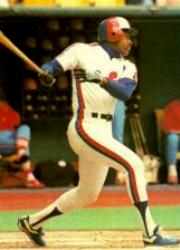
Al Oliver
1982-1983

Andre Dawson
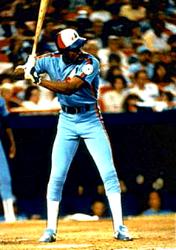
Andre Dawson
1977-1986
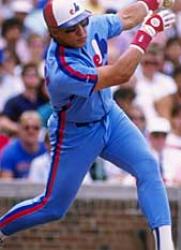
Andres Galarraga
1985- 1991, 2002
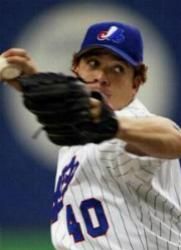
Bartolo Colon
2002
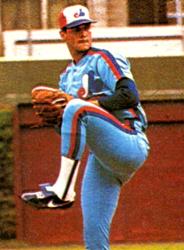
Bill Gullickson
1979-1985
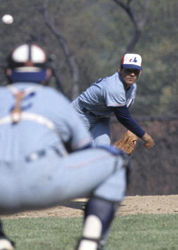
Bill Stoneman
1969-1973
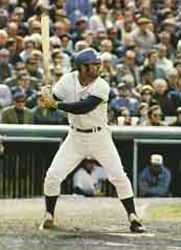
Bob Bailey
1969-1975
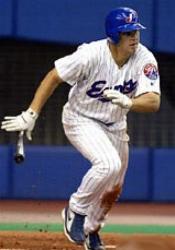
Brad Wilkerson
2002-2004
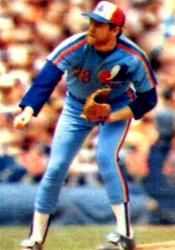
Bryn Smith
1981-1989
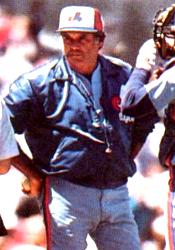
Buck Rodgers
MGR 1985-1991
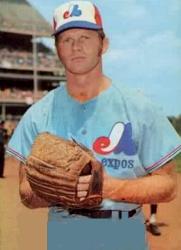
Carl Morton
1969-1972
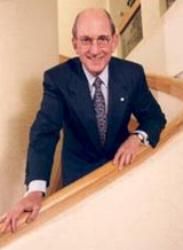
Charles Bronfman
Owner 1969-1991
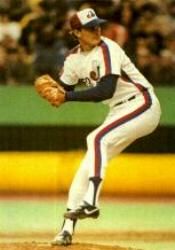
Charlie Lea
1980-1987

Chris Speier
1977-1984
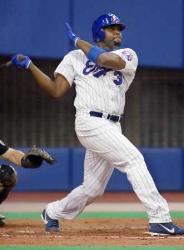
Cliff Floyd
1993-1996, 2002
Montreal Expos (1969-2004) Stadiums

1969-1976

1977-2004

2003-2004 The Expos home in San Juan, Puerto Rico